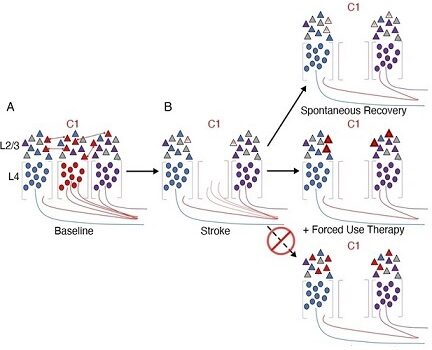Contrary to the commonly-held view, the brain does not have the ability to rewire itself to compensate for the loss of sight, an amputation or stroke, for example, say scientists from the University of Cambridge and Johns Hopkins University.
Writing in eLife, Professors Tamar Makin (MRC Cognition and Brain Sciences Unit, University of Cambridge) and John Krakauer (Johns Hopkins) argue that the notion that the brain, in response to injury or deficit, can reorganise itself and repurpose particular regions for new functions, is fundamentally flawed – despite being commonly cited in scientific textbooks. Instead, they argue that what is occurring is merely the brain being trained to utilise already existing, but latent, abilities.
One of the most common examples given is where a person loses their sight – or is born blind – and the visual cortex, previously specialised in processing vision, is rewired to process sounds, allowing the individual to use a form of ‘echolocation’ to navigate a cluttered room. Another common example is of people who have had a stroke and are initially unable to move their limbs repurposing other areas of the brain to allow them to regain control.
Krakauer, Director of the Center for the Study of Motor Learning and Brain Repair at Johns Hopkins University, said: “The idea that our brain has an amazing ability to rewire and reorganise itself is an appealing one. It gives us hope and fascination, especially when we hear extraordinary stories of blind individuals developing almost superhuman echolocation abilities, for example, or stroke survivors miraculously regaining motor abilities they thought they’d lost. This idea goes beyond simple adaptation, or plasticity – it implies a wholesale repurposing of brain regions. But while these stories may well be true, the explanation of what is happening is, in fact, wrong.”
In their article, Makin and Krakauer look at a ten seminal studies that purport to show the brain’s ability to reorganise. They argue, however, that while the studies do indeed show the brain’s ability to adapt to change, it is not creating new functions in previously unrelated areas – instead it’s utilising latent capacities that have been present since birth.
University of Cambridge press release: https://www.cam.ac.uk/research/news/our-brains-are-not-able-to-rewire-themselves-despite-what-most-scientists-believe-new-study-argues
Makin, TR & Krakauer, JW. Against Cortical Reorganisation. eLife; 21 Nov 2023; DOI: doi.org/10.7554/eLife.84716

 MRC Cognition and Brain Sciences Unit
MRC Cognition and Brain Sciences Unit


